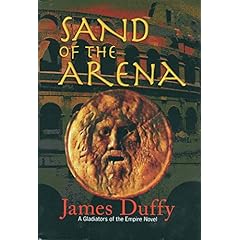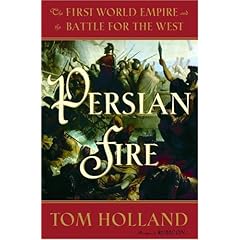
"Jamshid and the Lost Mountain of Light takes you back 2500 years to the palaces of ancient Persia, where a coup is being plotted. Jamshid is the son of the Grand Vizier to the Emperor, who finds his world turned upside-down as the story unfolds. Suddenly his parents are banished from the Empire, leaving Jamshid alone in the care of his tutor, Parthesus. Suliaman is a court official who will stop at nothing to take over the throne of the global superpower. Jamshid and Parthesus discover the plot - but can they save the Empire? The suspense and thrills of Jamshid's struggle against Suliaman - and himself - are guaranteed to grab the attention of readers young and old."
The inspirations and themes of the book were discussed in a recent interview by Darius Kadivar of Payvand.com:
"I particularly liked the battle scenes in your book between the mythological animals the Karibu and the flying Griffin Ghoreed or the secret landing on the Persian Gulf shores of the Egyptian Army led by the villainous Vizier Suliaman. It reminded me of some of Ray HarryHausen?s classic films that personally delighted me as a kid such as Jason and the Argonauts or The Golden Voyage of Sinbad or more recently like in the Swords and Sandals film Troy with Brad Pitt. You also illustrated your book with your beautiful drawings. What were your visual references or influences for these scenes?"
Howard LEE: That?s a very perceptive question! I love the Sinbad films, and they were definitely in my mind when I wrote the book. I wanted to have some of the archetypal feeling from the ?Arabian Nights,? the ancient Greek legends, and the Gilgamesh stories in my book. One of the ideas that interests me is how tales move from factual to legendary to mythical over time, which is why I have blended historical fiction with fantasy.
The visual influences for my illustrations were the reliefs at Takht-e-Jamshid, and the tile pictures at Susa. The sculptures are exquisitely stylized to the point where every curve is in harmony, an elegance of form echoed by modern sculptors such as Hepworth, Moore, and Arp. I wanted to keep that style in my illustrations. I also wanted to use the side-view representation of people, in keeping with the style at Takht-e-Jamshid."
Darius Kadivar: "Your book was showcased at the British Museum with the very successful exhibition ?Forgotten Empire? on ancient Persia. Jamshid?s quest for the stolen Royal Kuh-Nur diamond for which his father Daniel (a faithful and competent Vizier of the Persian King) and family are unjustly banished could be a good metaphor for many Iranian expatriates forced into exile since the revolution. Without revealing the end of your story, but isn?t Jamshid?s searching for the diamond revealing an Iranian characteristic in general throughout their history which is: an eternal desire to see the return of harmony, peace and justice in their ancient land?"
Howard LEE: "I think it is an eternal wish of good people everywhere, to see harmony, peace and justice in their land. The question is: what is the driving force? If it is revenge, hatred, or greed then it is unlikely to bring about those goals. In my book I refer to the privileged nature of the royal court, but that at every opportunity the poor were given charity. Of course I don?t know how historically accurate that is, but I do know that the strength of the empire of Cyrus and Darius was built on a sense of fair dealing and, for its day, a revolutionary view of human rights. I was impressed with the book ?Daughter of Persia? by Sattareh Farman Farmaian, who by her own account sought to bring harmony between the two Irans that have been in discord since at least the 1960s. I learned early on in my contact with Iranians that nobody can trick an Iranian like another Iranian, and I see that as a symptom of a deeper ill. Some seek a return to the old days, but the seeds of discord were there then. Some embrace a hatred-fuelled rejection of the old days, but as we know, this also doesn?t heal the rift. Others blame ?The West?. Whilst it is true the West, including my own country, has a long history of interference in Iran (from the ?Great Game? of keeping France then Russia out of India, to the oil and cold war politics of the 20th century), I think the social divisions within Iran also had a role to play in the way things turned out, and how they are now. I believe only the ways of compassion and mercy, at a practical and individual level, such as practiced by Sattareh Farman Farmaian, can bring harmony and peace and justice."


















 I see Oxbow books is also offering this revised edition of Seager's biography of Pompey for only half price. I've read quite a bit about Caesar but my knowledge of Pompey has been limited to a view of him from the Caesarian camp. His sensitive portrayal by British actor Kenneth Cranham on HBO's new miniseries "Rome" has peaked my interest even further. So I ordered this book as well.
I see Oxbow books is also offering this revised edition of Seager's biography of Pompey for only half price. I've read quite a bit about Caesar but my knowledge of Pompey has been limited to a view of him from the Caesarian camp. His sensitive portrayal by British actor Kenneth Cranham on HBO's new miniseries "Rome" has peaked my interest even further. So I ordered this book as well.


















 Poisoned Pen Press: " In late December 95 AD, Roman settlers in Britannia are preparing to celebrate Saturnalia. Innkeeper Aurelia Marcella's plans for a peaceful holiday are shattered when her brother brings bad news. An enemy in Rome is trying to destroy her family by spreading rumours that they are plotting against Caesar. Her brother has lost his job as a government investigator, the mansio is menaced by a gang of native criminals, and when a party of rich, demanding travelers arrive to stay, their quarrels and violence spill over into Aurelia's household. Then the Saturnalia banquet, highlight of the festival, culminates in tragic death. Aurelia's sister Albia is one of the chief suspects.
Poisoned Pen Press: " In late December 95 AD, Roman settlers in Britannia are preparing to celebrate Saturnalia. Innkeeper Aurelia Marcella's plans for a peaceful holiday are shattered when her brother brings bad news. An enemy in Rome is trying to destroy her family by spreading rumours that they are plotting against Caesar. Her brother has lost his job as a government investigator, the mansio is menaced by a gang of native criminals, and when a party of rich, demanding travelers arrive to stay, their quarrels and violence spill over into Aurelia's household. Then the Saturnalia banquet, highlight of the festival, culminates in tragic death. Aurelia's sister Albia is one of the chief suspects.

